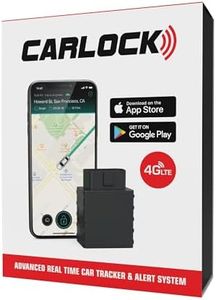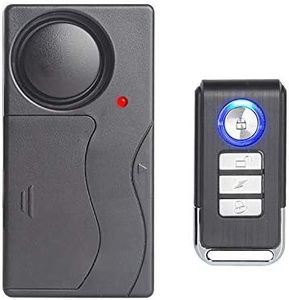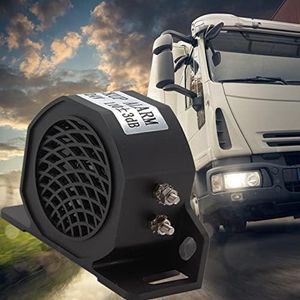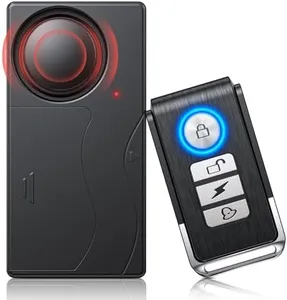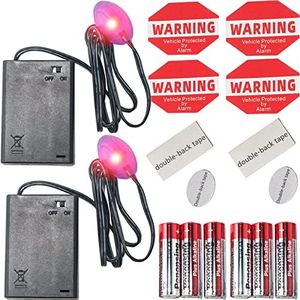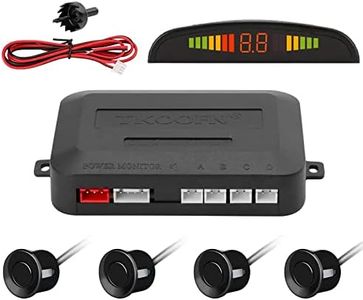We Use CookiesWe use cookies to enhance the security, performance,
functionality and for analytical and promotional activities. By continuing to browse this site you
are agreeing to our privacy policy
9 Best Car Alarms
From leading brands and best sellers available on the web.By clicking on a link to a third party's website, log data is shared with that third party.
Buying Guide for the Best Car Alarms
Choosing the right car alarm is important to protect your vehicle from theft and unauthorized access. With so many different models and features available, it’s essential to understand what functions are important to you, how you use your car, and what level of protection fits your needs best. Think about where you park most often, how you interact with your vehicle, and if you want just a basic alert or more connected, high-tech options. By understanding the key features, you can select a car alarm system that offers the right balance between convenience, security, and peace of mind.Sensor TypesCar alarm sensors are the components responsible for detecting suspicious activity around your car. Common sensor types include shock sensors, motion sensors, and tilt sensors. Shock sensors detect impacts or vibrations, motion sensors sense movement inside or near the car, and tilt sensors notice changes in the car’s angle (useful against wheel theft or towing). For light, everyday use in safe neighborhoods, basic shock sensors may be sufficient. For high-risk areas or if your car’s exposed to more threats (like parking on the street or owning high-value rims), choosing an alarm with multiple sensors provides better protection. Think about your parking habits and threats you want to prevent when choosing which sensors you need.
Alarm Volume and Siren TypeAlarm volume refers to how loud the siren is when triggered, typically measured in decibels (dB). Higher decibel ratings mean a louder, more penetrating alarm that can better attract attention and scare away thieves. Siren types vary, with some offering multi-tone sounds or even voice warnings. For most users, a siren of 100 dB or more is effective for deterrence, but some may want a quieter system if they park close to neighbors or in private garages. Consider where your car is usually parked—louder is better for open or public spaces, while moderate volume can suffice for enclosed areas.
Remote FunctionsRemote functions refer to what features you can control or access with the car alarm’s remote control or key fob. Basic systems offer simple arm/disarm options, while advanced models allow for remote engine start, window control, panic button features, and even real-time alerts to your phone. If you prefer convenience and advanced control, look for alarms with smartphone integration or extended range key fobs. Simple remotes may suit those who just want essential protection. Your lifestyle and desire for extra features are your guide here—think about whether you want just security or also added comfort and convenience.
Installation DifficultyInstallation difficulty is about how easy or complex it is to fit the car alarm into your vehicle. Some alarms are designed for DIY installation with simple wiring, while others require professional fitting due to their complexity. If you enjoy working on cars or have experience, a simpler system might be manageable at home. However, for more advanced alarms with lots of sensors or connections, professional installation is safer and ensures reliability. Consider your skills and willingness to install, as well as the importance of a seamless, tamper-proof setup for your needs.
Additional FeaturesAdditional features include enhancements such as two-way communication (the remote receives alerts back from the car), GPS tracking, smartphone notifications, and compatibility with other security devices. Two-way systems are useful for immediate feedback, letting you know if your alarm has been triggered even if you’re far from your vehicle. GPS tracking is great for high-risk situations or if you want to locate your vehicle remotely. Choose these extras based on your level of concern, how much you want to monitor your car, and your personal preference for smart tech.
